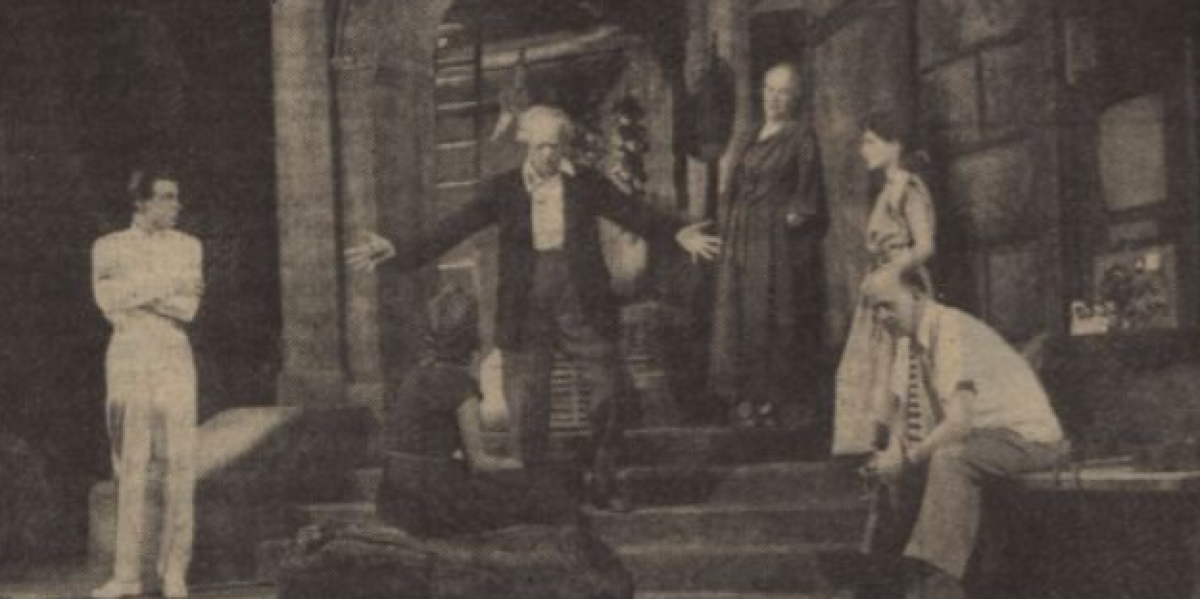Summer Day's Dream (1949)

Radio Times, October 28, 1949: A scene from the stage production of J B Priestley's 'Summer Day's Dream' to be presented on Sunday and Thursday. Left to right are Olaf Pooley, Adlina [sic] Mandlova, Herbert Lomas, Eileen Thorndike, Adrienne Corri and John Salew.
A play about England after the atom bomb by J B Priestley. Based on the recent stage production by Michael MacOwan.
The action takes place in the hall and on the terrace of an old country house on the South Downs; the time is around midsummer, 1975.
| Production company/ies | Broadcast station(s) | Broadcast date(s) |
|---|---|---|
| BBC | BBC Television Service | October 30, 1949 (8.50pm) November 3, 1949 (8.00pm) |
Production credits
| Producer(s) | Director(s) | Writer(s) | Other notable credits |
|---|---|---|---|
| George More O'Ferrall | Unknown | J B Priestley | Settings: Barry Learoyd |
Acting credits
|
Synopsis
Eighty-year-old Stephen Dawlish lives with his daughter-in-law, Margaret, grandson, Christopher, and granddaughter, Rosalie, in a former mansion which is now a farmhouse. There is no political system, no cars or telephones, and goods are exchanged by a barter system. Three characters from the surviving great powers of the world, the United States (Franklyn Helmer), the Soviet Union (Irina Shestova) and India (Dr Bahru), arrive in an attempt to develop a major industrial plant to create synthetic products out of the area's abundant produce of chalk. They initially dismiss the environment as, respectively, out of date, decadent and unenlightened. After a while, they find themselves captivated by the atmosphere of this rural society, and find themselves unable to carry out their plans, and ultimately depart to leave England in its newfound state of peace.
Notes
The play was written by J B Priestley in 1949 and is set in the year 1975, in a world where a nuclear Third World War has caused Britain to revert to a pre-industrial, pre-capitalist state. The title of the play is a nod to Shakespeare's 'A Midsummer Night's Dream', and it revolves around the English family who are producing this Shakespearean play. The story explores themes of societal collapse, the simplicity of rural life, and the resilience of human spirit in the face of catastrophic events. It reflects Priestley's concerns about the direction of modern society and the potential consequences of technological and political developments.
This adaptation is significant for its early exploration of post-apocalyptic themes on television. The BBC broadcast another version of the play in 1994 starring Sir John Gielgud.
